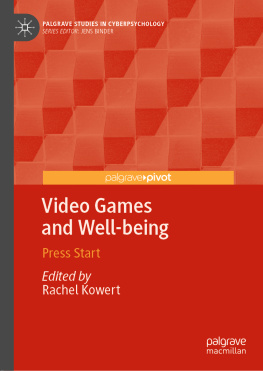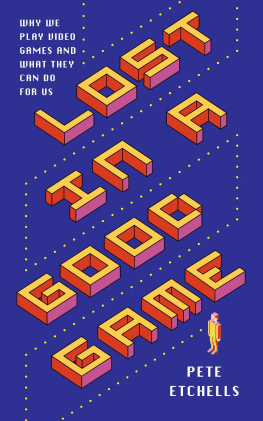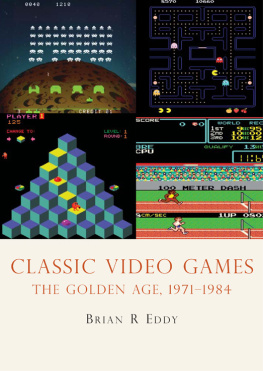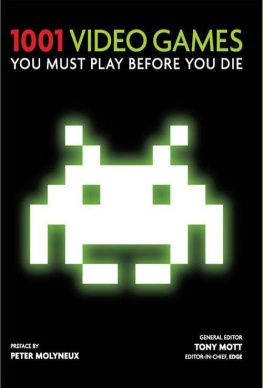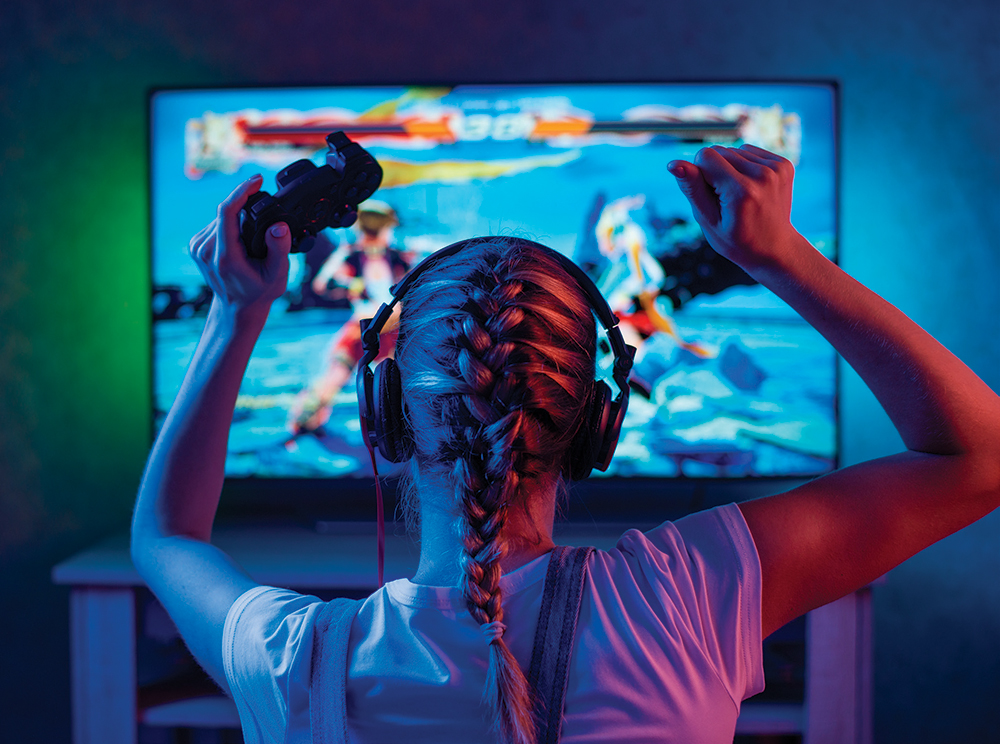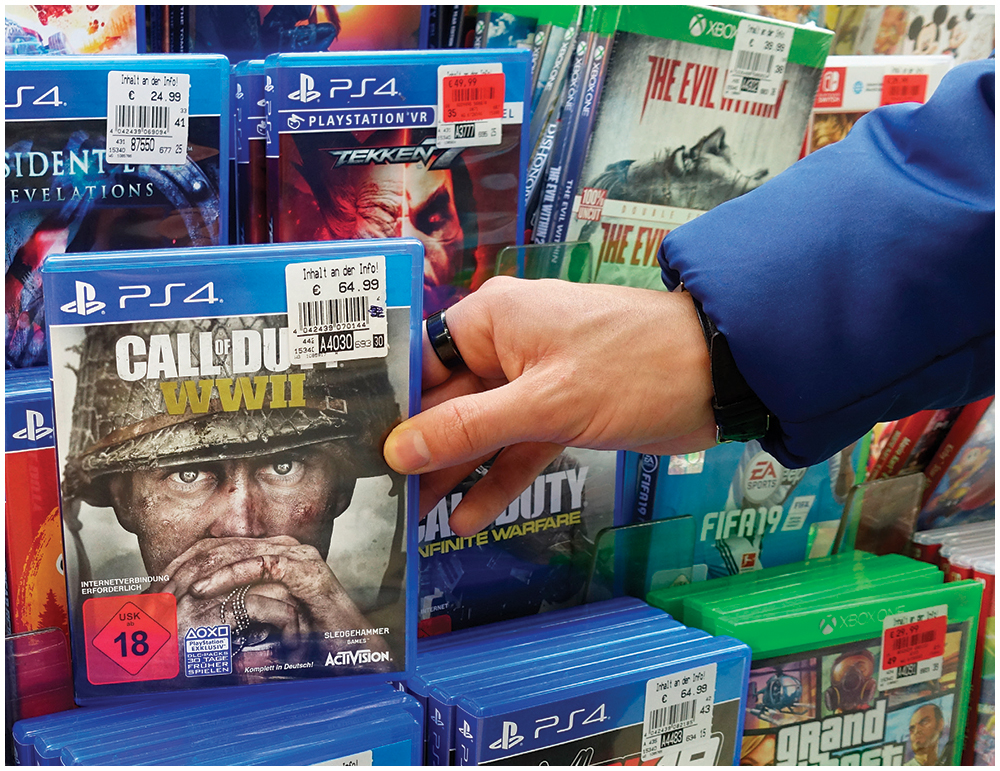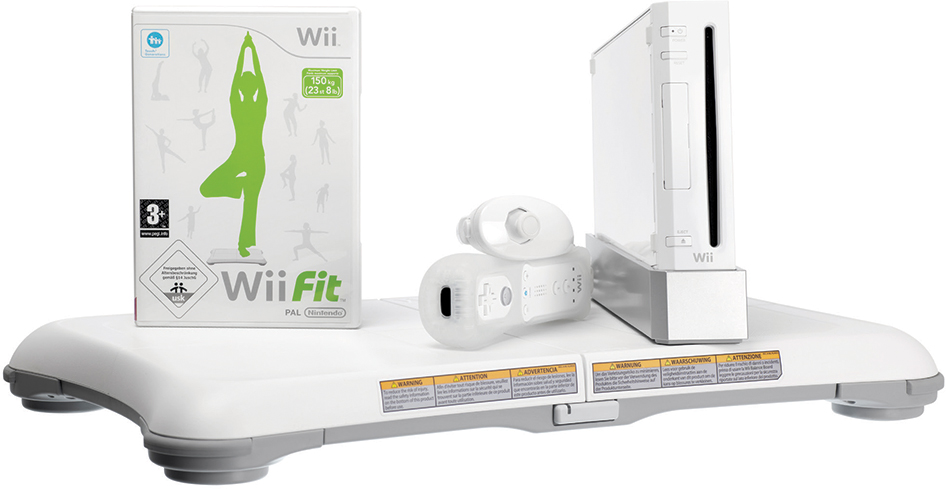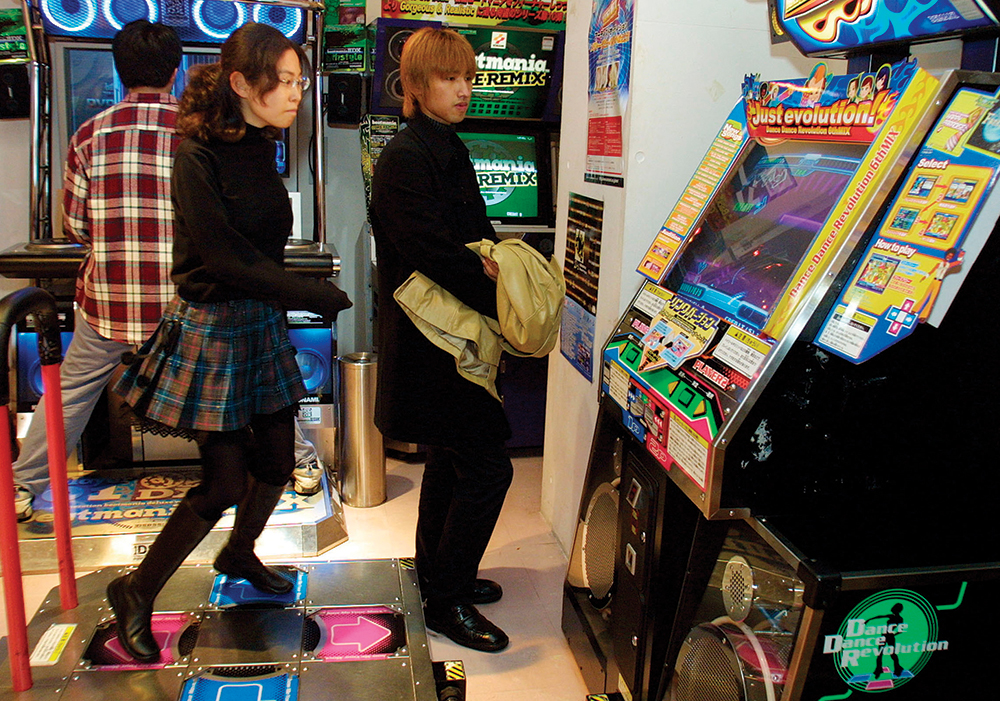LEVEL UP IN REAL LIFE
Maybe youve heard that people who play video games are lazy. They stare at screens all day, their brains turn to mush, and they never see the sun. Luckily, research shows this isnt true.
Scientists interested in learning about video games have made many discoveries. With each new study, their research reveals more about how video games affect our lives. Scientists have learned that video games are not as bad as people say. Video games can even be good for you!
CORRELATION AND CAUSATION
Good studies show the difference between correlation and causation. These two math words may sound similar, but if mixed up, they can lead to wrong information. Correlation means two things are connected. Causation means one thing affected another.
FACT!
A survey in 2018 found over 70 percent of gamers in the United States are 18 years or older.
GIVE YOUR BRAIN A BOOST
Video games are good at players to complete tasks and overcome challenges. If you play games, you already know it feels good to finish a level. Whether you earn a victory royale or race your way to first place, understanding why games are good at motivating players is important.
That feeling where you want to keep playing comes from a chemical in the brain called. Your brain releases dopamine when you achieve something and when you get close to completing a task. This is why you want to try again after placing second. You feel victory is just around the corner.
By activating dopamine in your brain, video games motivate you to keep playing. This can make tasks that are difficult more exciting. It also encourages players to focus, try new ideas, and learn. Plus, gamers may connect the success of beating a challenge to other challenges in their lives.
FACT!
In the original Super Mario Bros., players who finished a level at a certain time were rewarded with fireworks. The victory and special effects added to the players enjoyment.
ACTION-PACKED... PATTERN FINDING?
When you learn something new, you train your brain to find new connections. Your brain then works through these connections to create new patterns. A team of researchers from the University of Rochester wanted to see if video games could help with learning.
They experimented with two groups of people. One group played Call of Duty and other action games. The other group played non-action video games, such as The Sims. They played 50 hours over nine weeks. Researchers then tested the groups abilities to find patterns. The group that played action games performed better on the pattern task. But the action games didnt directly teach players how to find patterns. Researchers believe high-action game play trained the group to think quickly and try new things.
Researchers tested the players several months later. The action-gaming group still did better than the other group, suggesting the training gained by high-action games had a long-lasting effect.
Call of Duty and other action games may train players to think quickly and creatively .
VIDEO GAMES AND STRESS RELIEF
Have you noticed that video games help clear your brain after a long day of school? A study from London, England, suggests that adding gaming to your end-of-day routine could be a good idea.
Scientists know that mentally recovering from a day of work is important. Recovery prepares you for the next day and prevents you from feeling stressed. Researchers at the University College London Interaction Centre studied the relationship between gaming and recovery. They found that the number of hours spent playing digital games had a positive correlation to how well players recovered. This study suggests that people who take time to enjoy hobbies are more likely to recover from work.
GET A MOVE ON
Not all games are made for the couch. Motion controls have helped spur a rise in movement-based games. By using global positioning systems (GPS) in phones, games such as Pokmon Go get players out of the house. Playing active games encourages exercise, leading to many health benefits.
If you exercise during the day, you may notice its easier to get a full nights rest. Exercise also releases brain chemicals called endorphins to boost your mood. It may seem backward, but exercise also gives you more energy.
the Wii console, Wii Fit game, and Balance Board
FACT!
Released in 2008, Wii Fit was a video game designed to improve players health. It featured the Wii Fit Balance Board, which tracked players' movements as they did yoga, stretched, or played other games.
FANCY FOOTWORK
There is no denying that dancing is good for you. Whether in a ballroom or your living room, it can be great for your health. Dancing gives your muscles a workout and boosts the strength of your heart and lungs. Dancing video games give these same benefits to players.
a teen playing Dance Dance Revolution
FACT!
Since the first Just Dance came out in 2009, there have been more than 20 versions, including Just Dance: Disney Party and Just Dance: Kids.
Just Dance is a popular dancing game series. Once the music starts, players match the moves on the screen. Just Dance keeps score using motion controllers, or motion-tracking cameras. The closer you match the move, the higher your score. Later versions ofJust Dance let people connect with a smartphone. The bright lights and sound effects let you know when you are doing well and encourage you to keep dancing.

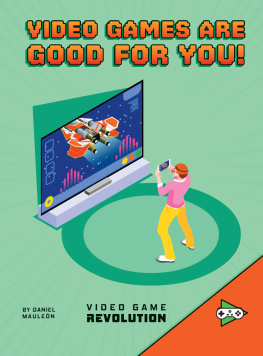
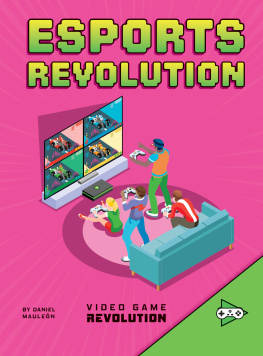


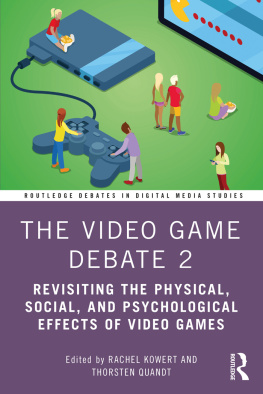
![Mark J. P. Wolf (editor) - Encyclopedia of Video Games: The Culture, Technology, and Art of Gaming [3 volumes]](/uploads/posts/book/279290/thumbs/mark-j-p-wolf-editor-encyclopedia-of-video.jpg)

